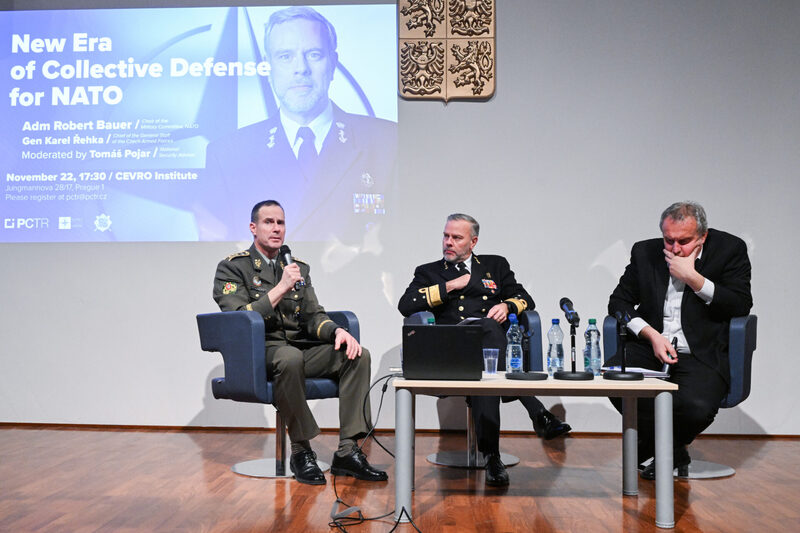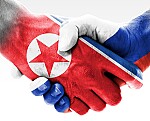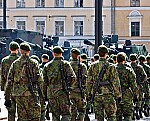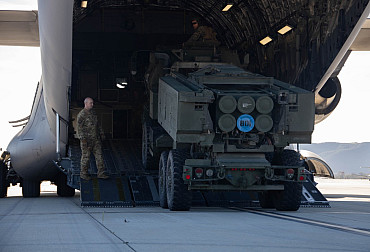Admiral Bauer: If you want peace, you have to prepare for war
The CEVRO University and its Transatlantic Centre (PCTR) are among the leading "hubs" in the Czech Republic that contribute to the formulation of not only Czech security strategies. That is why on 22 November 2023, the New Era of NATO Collective Defence Debate was held on its premises with the participation of the Chairman of the NATO Military Committee, Admiral Robert Bauer, and the Chief of the General Staff of the Czech Army, Gen. Karel Řehka, moderated by national security advisor and PCTR Council member Tomáš Pojar.

At the beginning of his speech, General Bauer praised the Czech Republic's attitude towards Russian aggression in Ukraine, both in the military and humanitarian spheres, including its open arms to hundreds of thousands of Ukrainian refugees. He also mentioned our country's strongest position to date since we joined NATO twenty years ago.
The head of the NATO Military Committee recalled the GLOBSEC Trends 2023 report, according to which the Czech Republic is one of the Central and Eastern European countries where the majority of the society supports NATO membership and the democratic establishment of the country: "You have made it clear that the struggle of the Ukrainians against the Russian aggressor is our struggle too, and if Putin wins, we will all lose. And I ask you to continue this support."
Bauer described as a success the Czech Republic's presence in the NATO Innovation Fund, the first technology startup ecosystem for defence and security, which will invest one billion euros in its members. Bauer reminded that NATO's strength is made up of its states, and if Article 3 of the Washington Treaty (developing our own and collective ability to resist armed attack) is not respected, then Article 5 (an attack on one member is an attack on all) cannot be guaranteed.
Defence is not just a question of the army, but of society as a whole
According to Bauer, it is now essential to be ready to defend at key points in the alliance, which requires increasing defence sector capabilities, increasing investment and fulfilling commitments from each individual alliance member. Our readiness is not just a question of our armed forces, but also of the readiness of the whole of society (as the war in Ukraine has shown) so that NATO is able to protect the billion people that fall under its umbrella from any threat: "NATO is the most successful defence alliance, not because of its high military capabilities, but because of the security and peace it has brought to the world. And this is also NATO's clear message to potential aggressors: we are united, we are determined, because together we are stronger!"
The head of the Czech army, General Řehka, reminded that we are very lucky to be part of NATO. He considers joining the alliance one of the best decisions made after the Velvet Revolution. However, he believes that there is a myth in the Czech Republic: "We always say that if something happens, NATO will help us. But we are part of NATO and the same applies to the other members of the alliance." That is why the Czech Republic must fully commit itself to gradually increasing its defence capabilities.
What lessons does the Russian aggression in Ukraine hold for NATO?
According to Bauer, we ourselves were surprised when the war in Ukraine broke out how united NATO is, especially compared to 2014, when Russia annexed Crimea: "Back then, some said that if Russian troops are not marked, then they must not be Russian troops! NATO's reaction in February last year was already clear and swift. The downside then is how long it takes our societies to prepare for what needs to be done. There are still many people who think that the war is far away and does not concern us, but this is a fundamental mistake! Russia's intention is clear: a return to the 1997 borders. The Russians want buffer zones around Russia, it is not just about Ukraine, they want much more, and we should be very careful: if we want peace, we must prepare for war! "
"I have never been so proud to be Czech as when I saw the reaction of my people and government." But he mentioned his disillusionment with the panicky reaction of part of society to his statements about mobilisation and the need to involve the whole society in the event of an imminent conflict, but this is based on Czech legislation.
The reluctance of the Western military-industrial complex
Security adviser Pojar praised the Czech defence industry for its flexibility and quick response to the conflict, but together with Baur criticised the large international trading and arms companies for their reluctance and slow approach in approving and increasing production not only for Ukraine's needs but also for the needs of individual member states. Bauer mentioned that Russia now has a war economy, which means it has to give everything to succeed in Ukraine: "Investing in defence is a strategic investment and we must finally wake up to this, because technological superiority over Russia may not be enough for increasing Russian military production."
Another important trend we see in the Russian-Ukrainian war is the level of training and leadership that the Ukrainians have thanks to Western training: a non-commissioned officer tells the Ukrainians what is important and what they must achieve in this war. Which is exactly what the Russians don't have.
The crucial lesson of the conflict, then, is the entry of drones and artificial intelligence into the war. Last but not least, according to Bauer, is data management. Every commander needs to constantly update his data, which means that out of millions of data, we have to give him only the data he needs at the moment. "For example, the F-35 fighter jets that the Czech Republic is going to buy are not just fighter jets, but a data centre with 20 terabytes of data. Data management is a key point in today's war."
Where is NATO heading in the next ten years?
Defence is a major issue for the company, says Bauer, because every country needs sufficient manpower during wartime, and the military is no exception. The military is not just about equipment and technology, but more importantly about the number of people it can provide. So each NATO member must consider solutions to achieve this in the event of a crisis, whether through conscription, mobilization, or some form of reserve force, or a combination of all. "It is imperative that all NATO countries wake up to this, because it can be very painful and slow to respond until wartime. Ukraine had the advantage of already having a large number of reservists before the war."
Logistics, logistics, logistics
In the West, we have outsourced logistics since our involvement in Afghanistan, which has worked well. But for a conflict like we see in Ukraine, it's not transferable. So we have to rebuild our logistics capabilities today.
EU-NATO cooperation
Bauer believes that EU-NATO cooperation works well: "The EU is about money, sanctions and economics. The EU is responsible for industry, which has an extremely big role to play in strengthening NATO. And NATO is responsible for defence and security issues. But the serious problem is the lack of investment in the defence sector. "Unfortunately, few institutions are prepared to invest in the defence industry. Another serious problem is the legislation set by previous governments, which makes it impossible to act quickly."
And how will the war in Ukraine end?
Bauer believes that whoever can prolong the war and persevere will win. And that is why Ukraine needs more weapons and ammunition to last the long haul. Ukraine knows that it must not stop, because if it does, it will lose its country. And it cannot and will not afford to do so.










